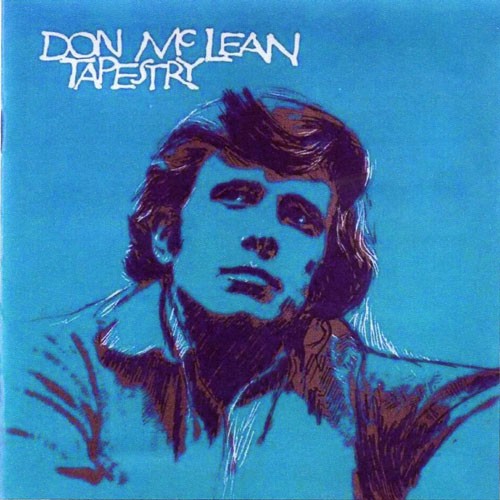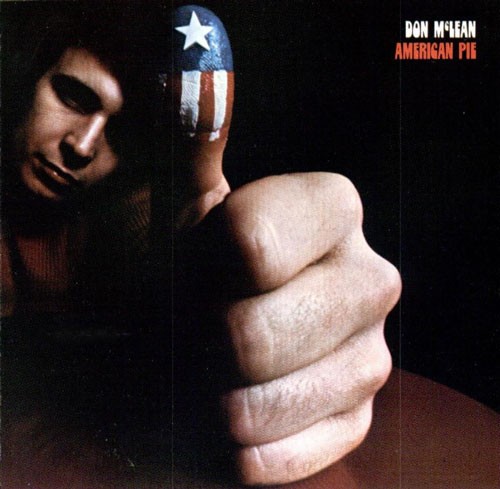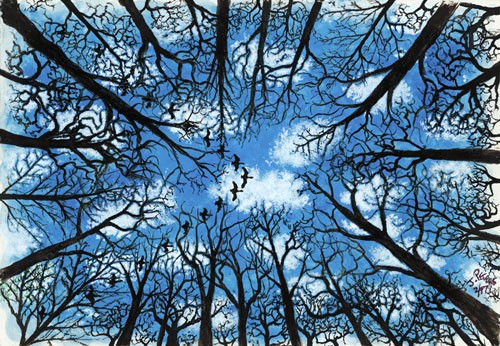A Conversation With Herb Gart - Part VI
Gaffes and Lessons Learned
By: David Wilson - Jun 03, 2012
With the success of Don McLean, Herb’s career expanded exponentially and broadened to the international stage. Herb here reminisces about some of his gaffes and the lessons learned. In a rare moment, Herb shares a little bit about how he met his wife, Lily, and the joy he takes in his daughter, Heather.
David Wilson Herb, believing as you did in Don McLean, and finding it so difficult in getting a recording contract, what was your response when you finally had one possible?
Herb Gart When Don McLean had been turned down by 72 labels, we signed with a company Mediarts that hadn’t existed when we started looking. Even though we had no other interest, I negotiated a tough deal as if we had plenty of choices. Our agent pleaded with me to give in to their demands rather than lose the deal. I told everybody that I knew what I was doing. As a result I managed to keep half the publishing for Don at a time when most artists gave up the publishing to the label. I also got a lot of other things that I wouldn’t have gotten if I had negotiated from weakness instead of apparent strength.
DW I know Tapestry was a modest success, but did anyone have an idea about how huge American Pie was going to be?
HG When we were about to release the American Pie album and single, I was given a very large budget for radio advertising in 5 major markets. I produced a one-minute radio ad that was almost entirely the music of American Pie with very little speaking. The point was that most people don’t really pay close attention to the ads, so the casual listener would think they heard the record. I was being congratulated on our big hit weeks before we actually released the record! But it was impossible to imagine how huge a phenomenon it became. You couldn’t escape it. Even today, over 40 years later, it is sung daily in karaoke bars and many of the people still know every word of an eight and a half minute song!
DW I imagine that a lot of corporate honchos were kicking themselves after that, did offers start to appear?
HG I moved Don McLean from Mediarts/United artists to Arista Records, signed by Clive Davis. The relationship was not very smooth between Clive and Don, so when Prime Time came out, Clive wanted to drop Don. Usually when the Record Company drops an artist they get some of their money back or at least don’t release the artist from any debt. However, I convinced Clive Davis that I was content to finish our contract even though he said he wouldn’t promote any records. I told him that he had very little to do with the success of a record; that I had seen him heavily promote a record and have one he wasn’t paying any attention to become the big hit. I had him convinced that I really didn’t care if he wouldn’t promote the records as long as he released them according to our contract. Once he was convinced that I meant it he paid to have us leave the label and gave us the Prime Time album back! A very rare occurrence in the business!
DW Don’s star was just rising as I was abandoning the music industry, but I did meet him briefly when he performed at Boston Garden. I think John Peters was his roadie at the time.
HG There is an interesting story as to how I met John Peters. I lived in New Hope PA and one afternoon someone knocked on my back door. It was John. I took him on as an apprentice, which meant that he would work for very little in return for my teaching him the business. He learned well and fast. He co-produced a Don McLean album with me (Solo) and co-produced Prime Time with Don. He was Don’s road manager for a while and took care of Roxy Dawn - no easy job. He studied acting in L.A. and finally turned to painting, where he is extraordinary.
DW But you got to travel the world with Don, didn’t you?
HG On my first trip to Japan with Don McLean, I was responsible for causing cultural chaos. Do managers who are well-intentioned and loyal to their Artist make mistakes? Of course they do. I always tell my clients before they sign their contract that it includes a paragraph that says you can expect me to make mistakes and some of them will be big mistakes. I am about to tell you a doozie, We were touring Hong Kong, Japan, Australia and New Zealand. The road manager was a very competent lady Patty Rix. Also on the tour was Don’s wife at the time, Carol McLean. I had not read up on the customs of each country - which was a stupid mistake. As we left Hong Kong for Japan, Don developed a sore throat. Being a professional, he was able to sing through it but it was wise to let him rest his voice for a few days. Our tour of Japan first included a publicity appearance with several “local” folksingers down at a river where on behalf of ecology we would float a paper boat as a symbol of the need to clean the environment. And sing. I decided to cancel the guest appearance so that Don would have time to heal his throat. Bad move!
DW Why was that so bad?
HG First of all a “local” act in Japan could sell hundreds of thousands of records and be famous and an important Artist. The event was a big deal being broadcast on National TV. More important, the Japanese need to “save face” was a crucial part of the culture. We were embarrassing our concert promoter. But I had already committed Don to have a sore throat in need of rest and unable to perform that first day. The concert tour itself started in a few days so there would be enough time for him to rest. The promoter insisted that a doctor examine Don and officially agree with me so that he could present the disappointing news to the waiting press, TV and the large number of fans who would be there. The doctor agreed with us. So I offered our promoter to send a representative down to the event to explain and apologize and that I would do some of the interviews. He was happy to accept my offer.
That’s the setup. Here are the results. I sent Patty Rix and Carol McLean down to the river to apologize on national TV and in front of all the press in Japan. Culture shock! It is an insult to send a woman to apologize for a man. I sent TWO women! The promoter had apoplexy! In the meantime back at the hotel I was being interviewed by the Japanese equivalent of Rolling Stone, who were not happy to not speak to Don, but accepted me as a surrogate. While the interview was in progress, Don walked into my room to get something he had left there, said hello to the interviewer, found the item he was looking for and left! I had to explain his voice was sore but he wasn’t bedridden. You can imagine how the promoter greeted the news!
As it happened, the promoter had gone to school in the United States and went to the same high school that Don had attended in New Rochelle, New York. It made the embarrassment easier to take, just a bit easier. That first day with the promoter was a memorable one. I still feel bad for him
DW I can see it was like walking a minefield. Was Europe easier?
HG When Don Mclean toured Europe, we were in Amsterdam on their May Day celebration of the American Forces entering their country to liberate them from the Germans. I am known to have a sardonic and sarcastic sense of humor. I was at a party that night and I cracked a joke. I did not know that a famous newspaper journalist overheard me until the following morning when my joke made the papers throughout Europe and England. I said “If we really wanted to punish the Germans, we should have made them keep France!” Obviously the only place it was not appreciated was France.
DW Eighteen years seems a long time to maintain a manager/artist relationship. They do happen, but they are not common. How did your tenure wind down?
HG It is the manager who is blamed for everything that goes wrong and the artist who is responsible for everything that goes well. It is important that the manager not take too much credit for the good things.
I lost a lot of trust from Don McLean when I took all the credits I was entitled to on his “Solo” album.. I took the pictures, co-produced it with John Francis Peters, a great painter I did the album notes and I designed the cover. I was the Manager and had my Rainbow Collection logo on the album as well. Ordinarily, I am careful to not brag about my role but for some reason I just felt I needed to have each of my credits listed.
This pissed Don off. It changed our relationship, although I represented him for over 18 years. I knew better than to do it.
When I eventually lost Don McLean after working with him successfully for all those years, it hurt a lot, but when he decided to stop paying me commissions still due, I had to sue him. That really depressed me.
DW Nonetheless I can understand the desire to be given credit for your accomplishments. A little recognition can go a long way.
HG I learned a valuable lesson about taking credit for your work when I set Ed Freeman who had produced American Pie, to record an album with Murray Mclauchlan, a Canadian singer-songwriter whose songs I published in the U.S.A. I was very excited about the matchup of those two creative people and looked forward to hearing the end results with some excitement. However, I was very disappointed in the results. I don’t know what I was expecting, but it wasn’t what I heard. As a result I asked that my Rainbow Collection logo and my credits be removed from the album. On that album was The Farmer’s Song which won the Canadian Grammy as the best song of the year! So much for taking credit or not taking credit. My opinion now is to take the credit. If you had done the work badly, you should acknowledge it as well as acknowledge the better work you do.
DW That is ironic. I knew Ed well and had introduced him to Barry and the Remains. He became their roadie when they became the opening act for the Beatles last American tour. I would guess that it was shortly after that he fell into your clutches.
Let me shift gears here for a moment. I know that you have managed to maintain a strong family relationship for many years, and I know given the business that that is by no means an easy thing to do. I am not even sure how you met your wife, Lily.
HG It’s worth telling you how I met Lily. I have the ability to sometimes tell a great deal about a person by their voice or some other emotional factors. I once heard a violinist at my brother’s graduation from high school. I thought she would like my friend Norman based solely on her playing. I didn’t know her at all. Well, they got married on my birthday to celebrate my bringing them together. I could go on about a lot of similar incidents, but the story is about Lily. She called the office from Milwaukee to find out where The Youngbloods were playing that night. The vibe between us was strong, so she found occasional excuses to call. She moved to L.A. and I had her meet The Youngbloods at the airport. We courted on the phone and the first time I met my beautiful Lily was when I picked her up at the airport to come live with me! The luggage on the carousel went around several times before I could think of anything but Lily. A year later we went on our honeymoon and got married on the way back. It turned out that she has a great ear for music and film. She recently introduced me to the Punch Brothers, who I recommend to all my readers.
DW I know it must have been hard on her a lot of the time. My wife seems to think that my life in the business was “glamorous” while you and I both know that mostly it is a grind. Being left alone a lot is no fun.
HG For people in the music business the spouse has a rough time. Their other half is on the road a lot or gets home at 4 am. In order to ease the burden on my wife, Lily, I swore I would come home every night it was possible even if it meant arriving for breakfast and back out again. Although she had a hard time, there was a lot less of being alone than most spouses get in the business. She had to raise our daughter, ‘Hurricane’ Heather mostly by herself. The ‘Hurricane’ nickname should suggest it wasn’t easy.
DW I don’t know her, but I would suspect she is a chip off the old block.
HG When Heather was 6 she showed signs of negotiating ability. We were having dinner at Grandma’s house and I said “Heather, drink your milk.” “I don’t want to, Daddy” “Heather, you have to drink your milk!” “I don’t want to, Daddy!” “I’ll tell you what”, I said, sure that my years of experience would get the right results, “I’ll drink half of your glass of milk if you drink the other half.” She looked me in the eye and slid the glass across the table. “You drink the first half, Daddy!”
When she was seven years old I took her to work with me. I commuted between New Hope, Pennsylvania and my office in New York City. It was an hour and a half trip but I didn’t mind because I could listen to tapes uninterrupted. Anyway, the entire trip she wanted to know when the coffee break would be!! She grew up to have a husband, three children, three dogs, three cats, a Bearded Lizard and some fish. She has had it rough from time to time, but she’s come through brilliantly. Because I took out my frustrations at home, she is still skittish about whether I love her as much as she wants me to, a price I pay for my self-pity.
In spite of my going home every possible night, Lily was on her own most of the time - and lonely. Worse yet, when I had a very bad day, I was grumpy and took it out on her and Heather. Not a good idea, but I couldn’t help it.They suffered for it. To my clients I had to be the rock they could lean on. It was hard to be that way all the time. I evoked a sense of calm and strength at the office and although it was true to a great extent, there were many trying times when things went wrong or the Artist was having deep troubles of his own.
I remember one night sitting in The Kettle Of Fish bar above the Gaslight Cafe, a somewhat drunk Patrick Sky was telling me his troubles when all of sudden he stopped, looked at me and asked “Who do you tell your troubles to?” At the time I had not yet met Lily so I was alone. It was a hard question to answer.
**********
In our next Installment I ask Herb for more details about his strategies for dealing with record labels.
Videos
Don McLean - A medley of If We Try and Empty Chairs live in Ireland.
A Conversation With Herb Gart – Part I
A Conversation With Herb Gart – Part II
A Conversation With Herb Gart – Part III
A Conversation With Herb Gart - Part IV
A Conversation With Herb Gart - Part V
A Conversation With Herb Gart - Part VI
A Conversation With Herb Gart - Part VII
A Conversation With Herb Gart - Part VIII
A Conversation With Herb Gart - Part IX



